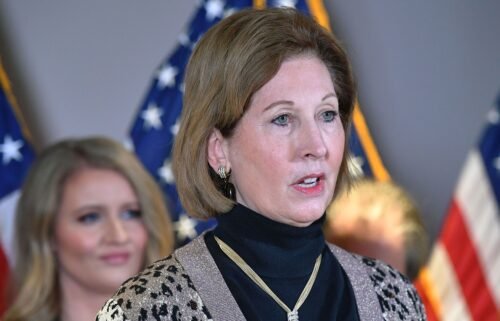After a month of no refugee arrivals, flights to the US are set to resume

The United States will begin admitting refugees on Tuesday after a series of moratoriums on refugee travel led to no arrivals in October.
President Donald Trump on Friday signed off on the historically low refugee cap of 18,000, thereby allowing refugees to begin resettling in the US. The presidential determination, as it’s called, came weeks after it was anticipated, putting flights on hold as a result and leaving hundreds of refugees who had been approved to come to the US in limbo.
A State Department spokesperson confirmed to CNN that flights will resume Tuesday.
“While we’re grateful to the administration for putting back into motion the refugee arrival processes that have stalled for a whole month, we continue to advocate resettlement levels commensurate with the global need,” said Scott Arbeiter, president of World Relief, one of the nine resettlement agencies.
Previous administrations have typically signed off on the ceiling before the start of the fiscal year in October. Until that occurs, no refugees can be admitted to the US. As a result, the State Department had to repeatedly cancel and re-book scheduled flights in October.
Still, the pause in admissions was highly unusual. There’s typically a moratorium on arrivals during the first week of October, but not for the whole month.
Refugee admissions have been briefly suspended in the past, but for specific reasons. In 2017, Trump put a temporary freeze on admissions to review the refugee vetting process. And after the 9/11 attacks, the Bush administration temporarily suspended admissions “while a comprehensive review of procedures was undertaken.”
The move to delay arrivals this year raised concerns among groups who had already booked travel for refugees approved to come to the United States.
Bethany Christian Services, which partners with refugee resettlement agencies, expected to admit unaccompanied minors and place them in foster homes in October. In four cases, unaccompanied minors have since turned 18 years old, meaning they’re no longer considered minors and will have to continue to wait at refugee camps in Nigeria and Egypt indefinitely.
The cancellations also came at the expense of federal dollars and created challenges for refugees whose medical exams or security checks were on the cusp of expiring.
But while arrivals are set to resume, the low refugee ceiling — the number of refugees who may be admitted to the US — in addition to new resettlement restrictions will still keep the number of arrivals far below previous years.
Trump issued an executive order in September that requires states and local governments to agree to receiving refugees, potentially limiting the places where refugees could eventually be resettled.
Some governors have come out in support of the resettlement program.
In a letter sent to Trump in late October, Republican Gov. Gary Herbert pointed to Utah’s history as a haven for Mormons fleeing persecution.
“Our state was founded by religious refugees fleeing persecution in the Eastern United States. Those experiences and hardships of our pioneer ancestors 170 years ago are still fresh in the minds of many Utahns,” Herbert said. “As a result we empathize deeply with individuals and groups who have been forced from their homes and we love giving them a new home and a new life.”
Pennsylvania Gov. Tom Wolf, a Democrat, also sent Trump a letter last month, noting that his state would welcome any refugees rejected by other states. And Oregon Democratic Gov. Kate Brown posted a video response supporting refugees.


